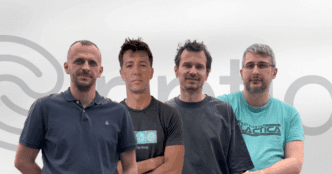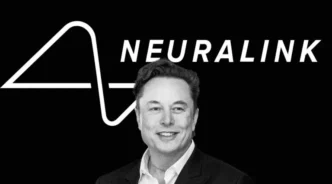In the first quarter of 2025, European health tech and AI startups attracted an impressive $13.9 billion in venture capital funding, according to data from Dealroom. This figure not only marks a 2% year-over-year increase but also keeps pace with the previous quarter, signaling steady momentum in one of Europe’s most promising sectors.
Global Capital Pours Into Europe’s Startup Scene
More than 40% of this quarter’s funding came from international investors — the strongest U.S. backing Europe has seen in a first quarter since 2021. Cross-border investment activity hit 28%, a peak not reached since 2011. This influx underscores the continent’s growing appeal and aligns with the ambitions outlined in the 2024 Draghi Report, which called for better financing tools and competitiveness across the European startup landscape.
AI continues to play a defining role. European AI startups alone raised $3.4 billion — a staggering 55% increase from the same period last year. A decade ago, AI accounted for just 7% of total VC investment. Today, it represents 25%, reflecting AI’s growing importance in software and services. RocketPhone CEO Muj Choudhury captured the moment well, saying AI is becoming deeply embedded in business workflows, and the key to its long-term value will lie in balancing governance with innovation.
In fact, without AI-related deals, Europe’s total VC investment for Q1 would have seen a 10% decline — a clear indicator of how central AI has become to the region’s tech economy.
Health Tech Steals the Spotlight Again
Health tech was the standout performer this quarter, raking in $4.3 billion — a 65% increase from Q1 2024. This marks the fourth consecutive quarter the sector has led European investment charts.
Big-ticket deals included a $600 million investment into Isomorphic Labs, which is building AI-first drug discovery platforms; $411 million for obesity-focused Verdiva Bio; and $260 million for Neko Health, a preventative health company co-founded by Spotify’s Daniel Ek.
Annick Verween of Biotope by VIB noted that biotech is benefiting from the AI boom, as startups can now process vast biological datasets with unprecedented speed and accuracy. However, she cautioned that investors are increasingly looking for more rigorous evidence of a startup’s technical value before writing checks.
During the recent World AI Cannes Festival, Bioptimus co-founder Jean-Philippe Vert explained how AI could enable scientists to pose novel “what-if” scenarios — such as predicting how cancer cells might react to different treatments. His vision of “digital twin” technology — where patient simulations guide real-world therapy decisions — hints at just how disruptive AI could be in healthcare.
Q1 saw nearly $1 billion flow into AI drug discovery ventures alone. Meanwhile, industrial AI attracted $669 million, reflecting a growing interest in sectors beyond traditional healthcare. Gary Coffey, CTO at Spectrum.Life, sees AI as essential for reducing the burden on health systems, improving diagnostics, and enabling earlier interventions.
Julia Hawkins, GP at LocalGlobe, added that Europe’s health tech rise is the result of persistent support for bold founders. With mental health concerns and ageing populations on the rise, demand for smart health solutions has never been more urgent.
UK Leads the Pack, But Ireland and Malta Surge
The UK continued to lead the continent in tech investment, pulling in $4.2 billion in Q1 — an 8% uptick. London alone raised $3.2 billion, up 26% year-over-year. Other standout regions included Oxford and Cambridge, with Oxford’s investment volume surging 200% to $280 million.
Ireland made even bigger waves. Fueled by standout deals like XOCEAN’s $128 million and Tines’ $125 million, the country saw investment soar by 542% to $538 million. Dublin entered the top 10 most-funded European cities, with a remarkable 824% increase in capital raised.
British Patient Capital’s Christine Hockley said the UK’s deep tech and life sciences sectors remain strong despite broader macroeconomic headwinds. She expects to see more specialized funding strategies take root — especially in high-potential niches like stem cell therapies and climate tech.
Germany, France, and Spain each attracted over $1 billion this quarter. Spain’s travel tech scene stood out, with $246 million going to AuroTravel and $200 million to TravelPerk — a 175% increase over last year. Malta also had a breakout moment. A single $600 million deal involving private jet startup VistaJet pushed the island nation’s quarterly funding up 1,230% from Q1 2024.
What Lies Ahead for Europe’s AI and Health Sectors?
The numbers from Q1 are impressive — but more importantly, they reflect structural changes in how global investors view European startups. With health tech and AI at the forefront, the region has built momentum that could carry well into the rest of the year.
As investment keeps flowing and innovation accelerates, Europe is poised to remain a key global player in tech — not just catching up, but leading the charge in domains that truly matter.













